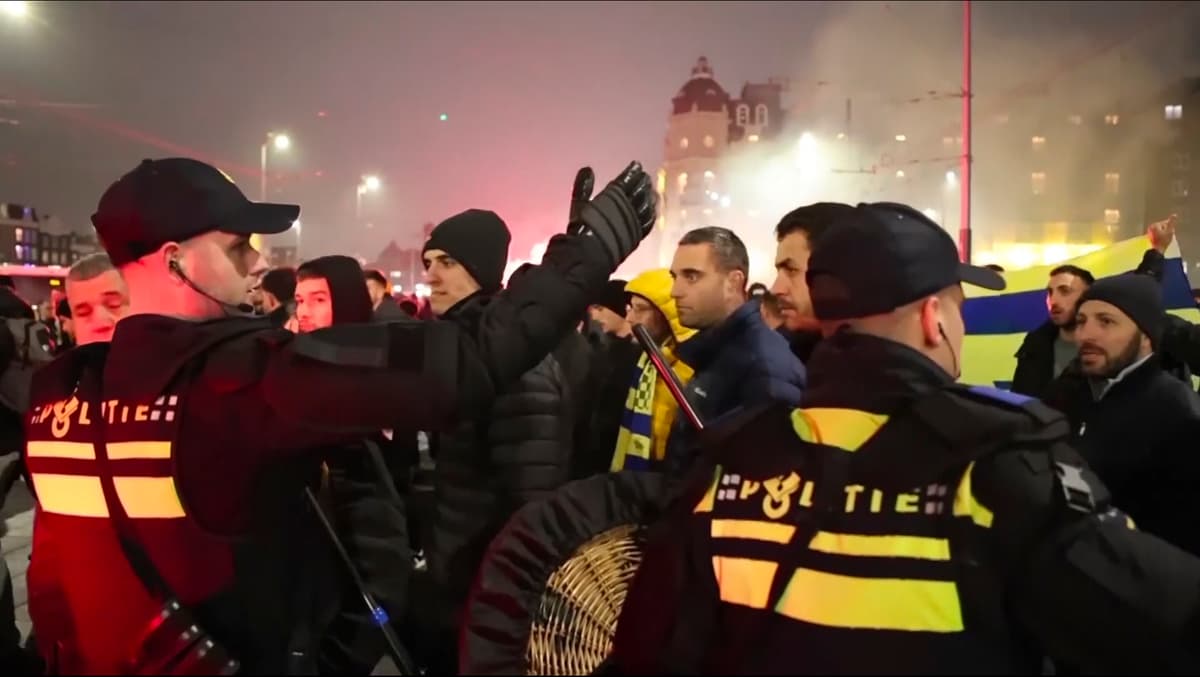Birmingham officials are reconsidering a controversial ban that prevents fans of Israeli soccer club Maccabi Tel Aviv from attending an upcoming Europa League match against Aston Villa on November 6, 2023. This decision follows backlash from political leaders and community groups who argue that the ban is rooted in antisemitism rather than genuine security concerns.
The ban was initially recommended by Birmingham’s Safety Advisory Group after a campaign led by a figure associated with Hezbollah. Critics, including British Prime Minister Keir Starmer, have suggested that safety justifications may serve as a cover for discriminatory attitudes. The decision gained traction after a dossier titled “Game Over Israel,” submitted to West Midlands Police by the Hind Rajab Foundation, played a pivotal role in the recommendation.
The dossier was presented by Dyab Abou Jahjah, a known Hezbollah figure who is prohibited from entering the UK due to his extremist views. In it, he labeled Israeli fans as provocateurs, warning that their presence in a predominantly Muslim area could incite disorder. He cited a violent incident in Amsterdam in November 2024, where clashes between Maccabi and Ajax fans resulted in over 60 arrests and multiple injuries, as justification for the ban.
In response to the ban, Birmingham parliamentarian Ayoub Khan has voiced strong support, characterizing Jewish fans as “racists and hooligans.” He pointed to the cancellation of a Maccabi fixture in Tel Aviv as evidence that the ban is justified. Nonetheless, accusations of antisemitism have emerged against Khan and his supporters, raising questions about the true motives behind the ban.
The situation has drawn attention from organizations such as UK Lawyers for Israel, which warned that the ban could violate the UK’s 2010 Equality Act. In a letter to Aston Villa executives, the organization argued that if Maccabi fans are barred, then Aston Villa supporters should also be excluded from the match. Jonathan Turner, the chief executive of UK Lawyers for Israel, emphasized that “if an event cannot be held safely without discrimination, the law requires that it not be held at all.”
Home Secretary Shabana Mahmood stated that the government is committed to ensuring safety for all fans attending the game, describing antisemitism as a “stain on our society.” Despite this, Mahmood has faced criticism for her timing, having been aware of the ban’s consideration prior to its approval.
Former Prime Minister Liz Truss expressed skepticism regarding the government’s willingness to reverse the ban. She suggested that the current administration fears alienating Muslim voters, who comprise approximately 6.5 percent of the UK population. Truss accused the Labour Party of pandering to Islamist interests to secure electoral support.
As discussions continue, concerns grow about the potential for increased anti-Jewish sentiment and violence surrounding the match. Some fear that the controversy surrounding the ban could create a volatile atmosphere, leaving fans vulnerable as police manage security at the stadium and in the city.
The European League has already banned fans from attending a match between Maccabi and Beșiktaș scheduled for later in November 2023. This decision reflects ongoing concerns about safety and the potential for violence in the context of rising tensions related to the Israeli-Palestinian conflict.
As Birmingham officials weigh their options, the implications of their decision extend beyond sports, touching on broader societal issues related to tolerance, safety, and the fight against discrimination. The outcome of this debate will likely resonate within both the sporting community and the wider public discourse regarding antisemitism and security.





































































